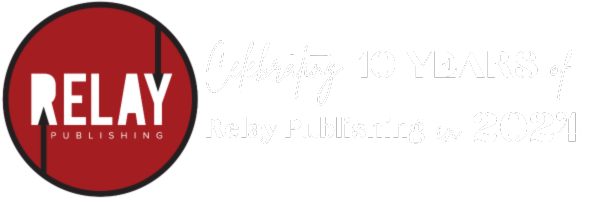Do you have a distinct eye for detail? Can you spot errors where others would overlook them? Do you have the ability to communicate with creatives, offering guidance and advice when they get lost on the page? Editing jobs near me? They’re wherever you lay your hat.
Editing is a specific skill set. Great editors can see the wood through the trees – spotting mistakes from a hundred yards and fact-checking the writer’s research.
So, if you’re looking for editing jobs near me but – perhaps – are unsure of the ins and outs of the role, read on.
What’s the difference between a writer and an editor?
An editor REVISES a writer’s manuscript, while a writer is the one that comes up with the creative content in the first place.
That’s not to say that editing isn’t a creative role. But, essentially, an editor is responsible for helping a writer’s writing lift off the page more satisfactorily.
What does an editor DO?
Many writers write with a distinct sense of urgency. They’re keen to get their ideas on the page to craft their words into images that evoke feelings in their readers.
And while few editors would choose to work with a writer that pays NO credence to recognized writing conventions, a great editor works with the writer to ensure that the manuscript is – well, readable.
So, an editor completes the following tasks:
- Content checking – grammar and spelling
- Fact-check
- Review and guide the development of the work
Essentially, an editor is the audience of the books or articles produced by the writer. They take the broader approach of reviewing and guiding work so that it hits the nail on the head. It’s the editor’s job to forge a “cohesive whole.”
Can a writer be an editor?
Short answer – yes. But the longer answer is possibly not.
Let me explain:
The role of a writer requires a specific set of skills – you need inspiration and dedication, and you need to be prepared to place your behind on a chair and stay there until a manuscript exists.
However:
A writer shouldn’t be their own editor because they’re too close to the work – they can’t give themselves feedback like an editor can. Writers focus on story, while the editor focuses on the publication.
Writer/editor jobs are symbiotic – one can’t exist without the other; at least, not in great literature.
The writer is the creator, and the editor is the analyst – they review, guide, and manage the work. A great editor knows the publishing world, and they know what will work commercially.
Not to say that a piece of writing that’s non-commercial isn’t good. But the editor will steer the work to give the content the most likely chance of success.
Who earns more – a writer or an editor?
A typical novelist will work on one piece in a year. Sure, their advance is likely to be higher than the editor’s fee, but:
What do editors do while the writer is off crafting their work? Twiddle their thumbs?
Absolutely not.
No, an editor will work on multiple client projects – helping several writers craft their pieces.
So:
A full-time book editor can make thousands of dollars a month, depending on how many clients they have. They apply their editing skills liberally, and they may have an assistant editor helping a range of writers produce top-quality pieces.
What kind of hours do editors work?
Part-time, remote editor jobs work around you – if you’re a freelance editor, you define your own hours.
But, of course, you need to make a living, and remote freelance part-time editor jobs will bring in around $500 a month.
How much do full-time editors make?
Full-time editor jobs demand full-time hours.
That doesn’t necessarily mean you can’t be a remote worker if you’re full-time, but if you work for a big firm in the communications department, they’re likely to pile on the pressure to overcome the work pile.
Payscale differs by industry, but expect to make thousands of dollars a month (rather than the hundreds you could expect as a part-time editor).
So, while remote, part-time working feels super-attractive, it might not necessarily bring in the bucks like full-time.
What types of jobs can an editor do?
One of the most attractive features of editing jobs is that editors aren’t industry specific – they focus on written content for a wide range of professional realms. Some editors are remote, while others work in-house.
The types of companies that need editors are:
- Business
- Technology
- Science
- Education
- Social media marketing
- Marketing
- Journalism
You could be an editor for a magazine or an authoritative blogging site, such as Forbes or HuffPost.
Alternatively, you might be the managing editor in a corporate PR department or a technical editor for an IT business’s marketing or communications department, ensuring that the customer-facing message is crystal clear and social media “cancel-safe.” Or you might be a copy editor for various companies, ensuring that freelance writers stick to house guidelines for the publication or blog.
Editors are highly respected and often paid more than jobbing writers and journalists. You may be responsible for training newcomers, ensuring that writers paid by the hour and full-time writers are writing with the same voice.
What’s the difference between a literary editor and a video editor?
In essence, video editing and literary editor jobs are kind of the same thing. They both take raw material and help forge it into a cohesive whole.
Obviously, video editors create video content from raw video footage, whereas a literary editor is a position that helps (usually) more complete content make sense on the page.
Video editing uses digital platforms such as Adobe Creative Suite and Final Cut Pro while editing content. Video editors work closely with the producer, using editing software to tie disparate video footage into a structure that makes sense to the viewer.
A video editor is both a technical and a creative position. In contrast, a literary editor uses their innate knowledge of grammar, spelling, syntax, and publishing savvy to ensure the written word is fit for audience consumption.
Is it hard to get a job in editing?
Essentially, establishing yourself in any creative writing role is challenging, whether you’re writing or editing for the web or working with external writers to meet deadlines for a publication.
Sign up for recruitment sites and wait for that perfect job alert. Or gather some professional experience editing content for the web, using sites such as Upwork to connect with employers.
Harry Wallett is the Founder and Managing Director of Relay Publishing. Combining his entrepreneurial background with a love of great stories, Harry founded Relay in 2013 as a fresh way to create books and for writers to earn a living from their work. Since then, Relay has sold 3+ million copies and worked with 100s of writers on bestselling titles such as Defending Innocence, The Alveria Dragon Akademy Series and Rancher’s Family Christmas.
Harry oversees the creative direction of the company, and works to develop a supportive collaborative environment for the Relay team to thrive within in order to fulfill our mission to create unputdownable books.
Relay Publishing wants you
If you think you have what it takes to become a brilliant writer, editor, or storyliner, Relay Publishing has a range of exciting opportunities.
Find out more about us, and get in touch.
We can’t wait to hear from you!



